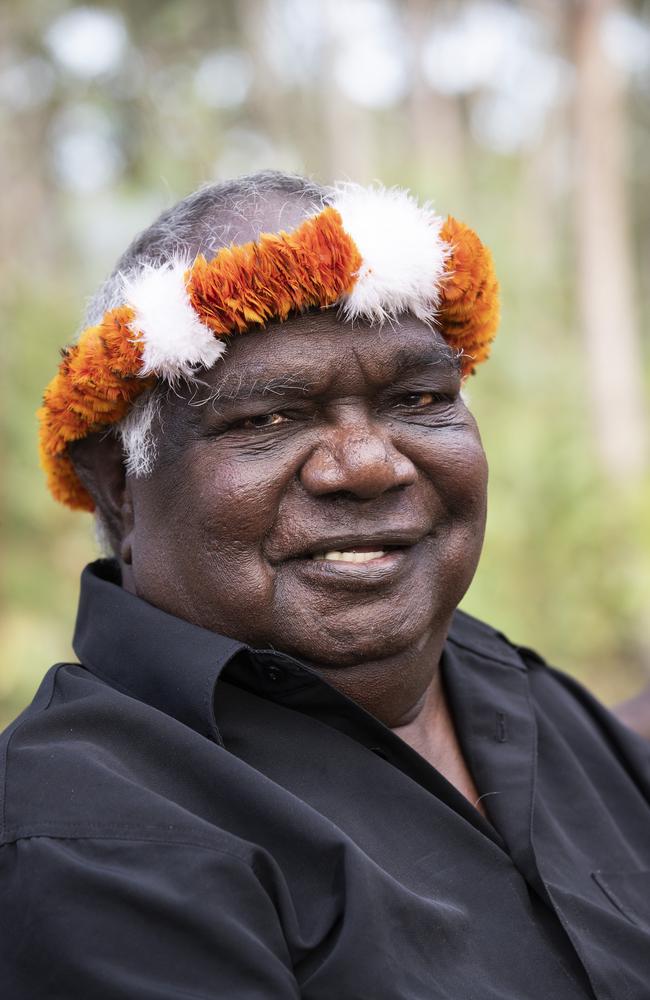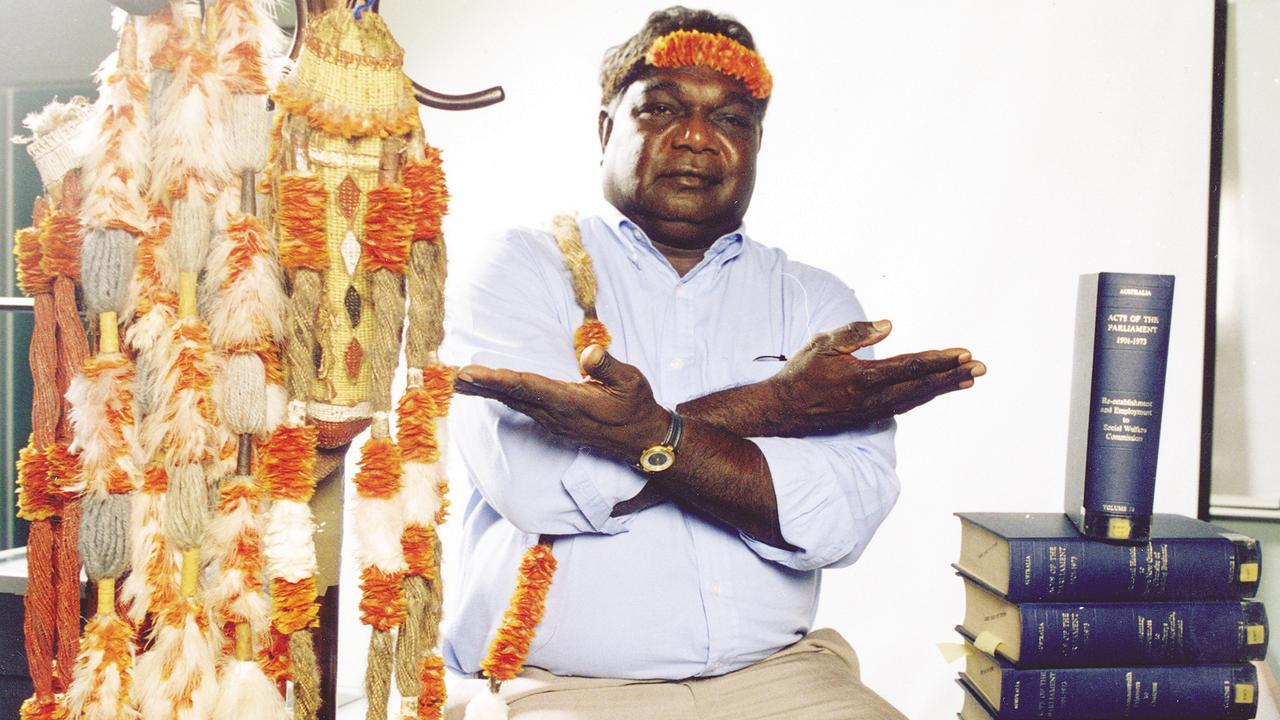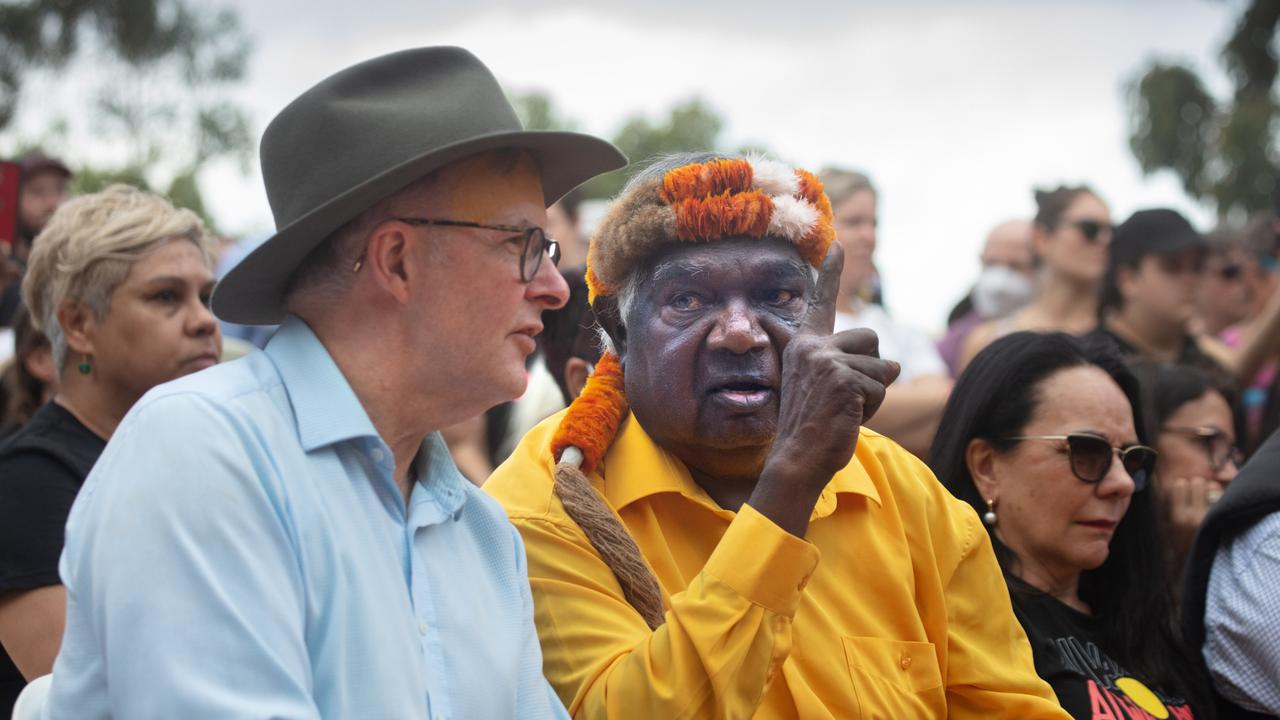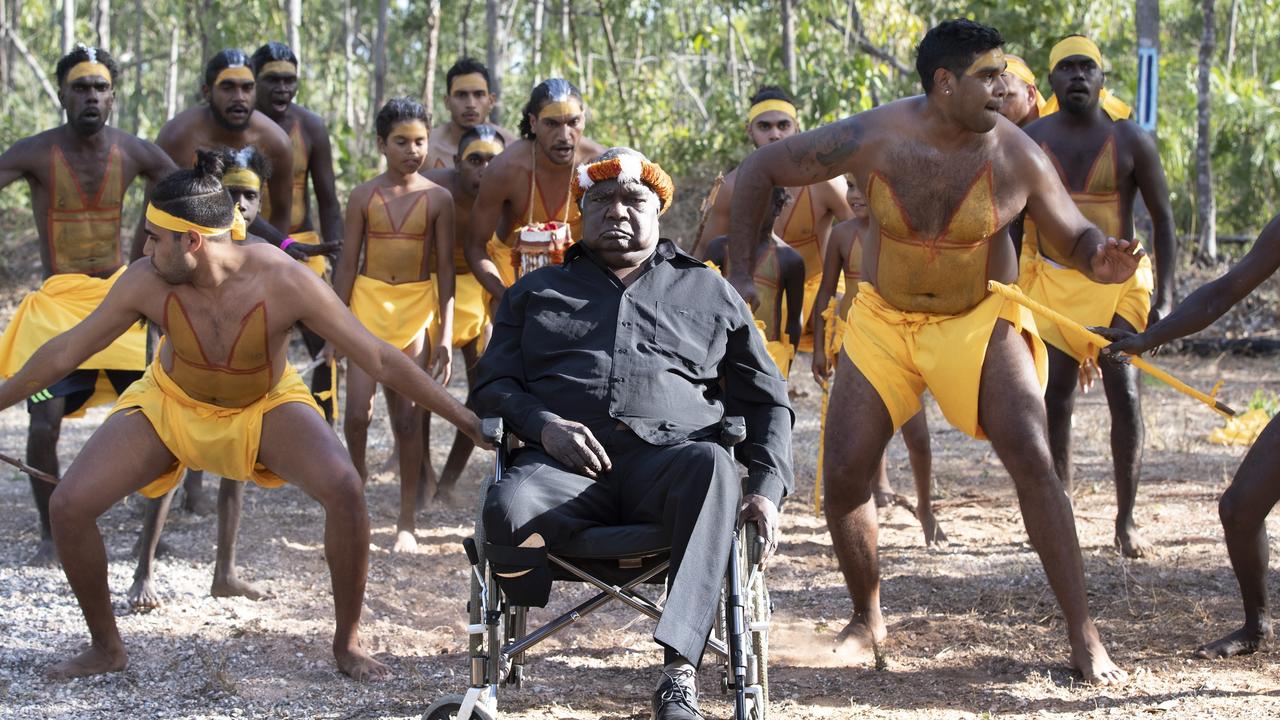Indigenous Gumatj leader Yunupingu dies aged 74
Yunupingu has been described as a ‘national treasure’, able to not only walk between two worlds but bring them ‘together’. Read how his life’s work will continue to shape history.
Northern Territory
Don't miss out on the headlines from Northern Territory. Followed categories will be added to My News.
This story contains images and the name of an Aboriginal person who has died, with the permission of his family.
One of Australia’s most pioneering advocates for Aboriginal land rights has died.
Yunupingu, the most senior Yolngu leader in his Gumatj clan in Northeast Arnhem Land, has died aged 74.
Named Australian of the Year in 1978, Yunupingu was also a long-term chairman of the Northern Land Council and Yothu Yindi Foundation chairman.
Born at Melville Bay, he attended the Yirrkala Mission School and later helped his father draft the famous Bark Petition of 1963 that protested a federal government-backed bauxite mine on Yirrkala country.
It marked the first traditional Aboriginal documents recognised by the commonwealth.

He was also the court interpreter for the Gove Land Rights Case and became the NLC chairman in 1977, playing a crucial role in negotiations surrounding the Ranger Uranium Mine.
His actions sparked a countrywide land rights movement that continues today.
Recently, Yunupingu had been fighting a landmark native title case in the Federal Court.
Yunupingu had been arguing the commonwealth’s decision to allow the Nabalco mine in his Northeast Arnhem Land country effectively had the Gumatj native title acquired without consent.

The court was told if successful, the case could have “huge ramifications” and potentially affect every act by the Crown in the Northern Territory between 1911 and 1978.
Yunupingu first signalled his intention to seek compensation during a speech at the Garma Festival in 2019.
It was at the same event in 2017 the Yolngu elder told Australia he wanted federal MPs to lead Australians toward a referendum on creating an Indigenous Voice to Parliament.
He later became one of 20 members of a senior advisory group tasked with co-designing the Voice.
Six years later, his vision is shaping into reality, with Prime Minister Anthony Albanese announcing the wording of the referendum question just last month.
Mr Albanese paid tribute to Yunupingu on Monday, saying the country had lost a “national treasure”.

“Yunupingu walked in two worlds with authority, power and grace, and he worked to make them whole — together,” Mr Albanese said in a statement.
“What he could see was not the reinvention of Australia, but the realisation of a greater one.”
Mr Albanese said Yunupingu was a “leader”, a “statesman” and a “remarkable member of a remarkable family”.
In 1978 Yunupingu was named Australian of the Year and seven years later was made a Member of the Order of Australia.

In 1998 he was added to the list of 100 Australian Living National Treasures.
He was also the Yothu Yindi Foundation chairman, the pioneering organisation behind the Dhupuma Barker School, the Garma Institute and Garma Festival.
Yunupingu was also the older brother to Mandawuy Yunupingu – a fellow Australian of the Year and founding member of the Yothu Yindi band.
Read how Australian and international leaders are paying tribute to Yunupingu here.
More Coverage
Originally published as Indigenous Gumatj leader Yunupingu dies aged 74








